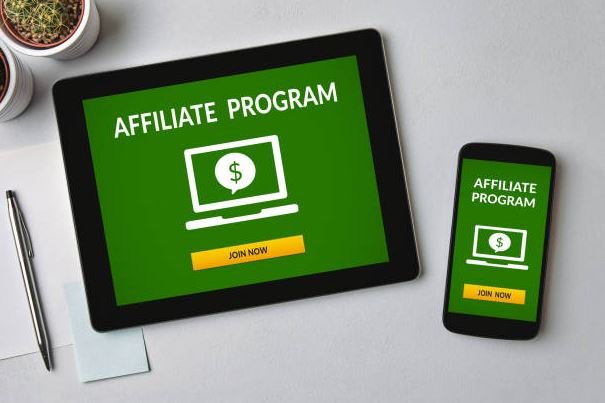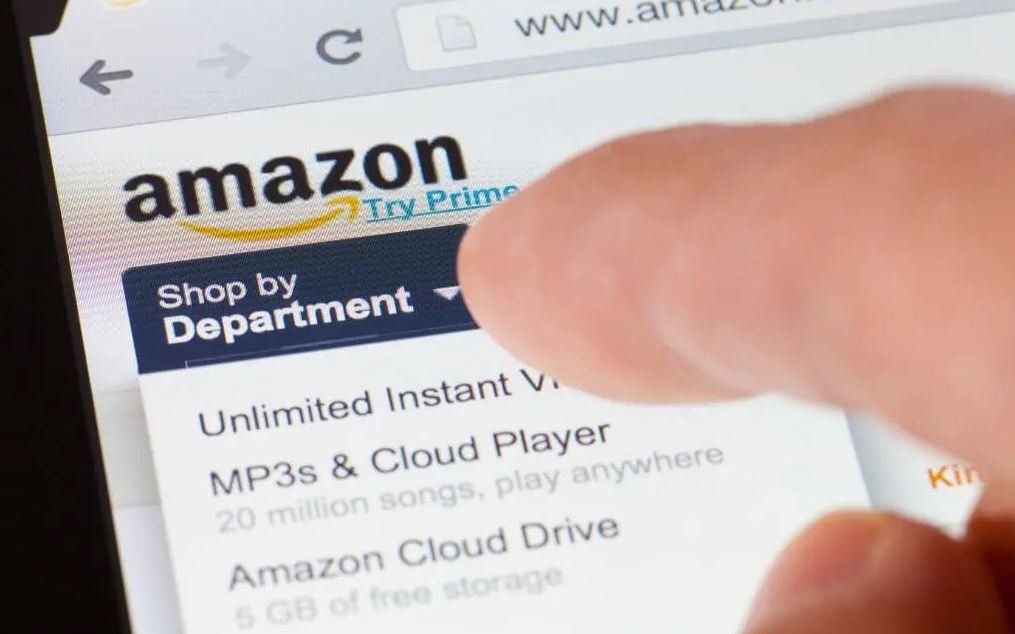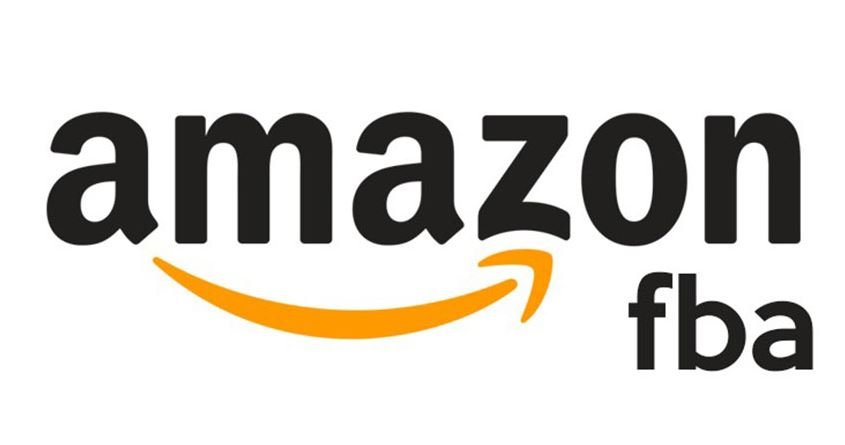The affiliate marketing industry has grown over the years. As of 2017, the global affiliate marketing industry was worth $12 billion, and the numbers will increase. To succeed at affiliate marketing, you need a traffic source, which could be from a website, but you don’t need a website.
Don’t get your hopes up just yet; we’re not ruling out websites completely as a requirement for affiliate marketing. Websites are essential, and we’ll get into all the details later. But there are other ways to do affiliate marketing as a beginner without a website.
As a beginner, there are three things you need to start affiliate marketing: a website, an audience, and an affiliate offer. Affiliate marketing is a popular way to make money online. It’s also a great way to get started with your first online business.
Affiliate marketing is the best way to start making money online. It’s low-cost and low-risk, and it’s a great way to build up your portfolio while you work on your website. This article will cover how to start affiliate marketing as a beginner.
What Do I Need To Start Affiliate Marketing?

What Is The Future Of Affiliate Marketing 2023?,
How To Start Affiliate Marketing For Beginners In 2023?,
Free Affiliate Programs In Nigeria
A company pays people (affiliate marketers) to refer customers to buy their products in affiliate marketing. The company’s role is to ensure the products are available, bring in sales, and get paid.
As an affiliate marketer, your target is to make sure your customers get the right offer. So, you must find customers and make them an offer they can’t resist.
1. An Affiliate Offer
An offer is a product or service you’re promoting. Finding the right offer means everything to your customers. It would help if you gave that to them. You can’t pick some random product and try to force it down people’s throats. Finding the right offer means finding a valuable product that people are willing to pay for.
However, it’s up to you to decide what products you want to promote; make sure it’s worth buying. Alternatively, you can join ad exchanges and affiliate networks to make your search easier.
2. Traffic Source
In simple terms, the traffic source is where people gather. You need a platform to reach people that’ll turn into buying clients for the company you’re promoting. That platform where you go, people, is the traffic source.
As an affiliate, you promote a company’s offer and get paid when someone buys through your link. You must know that there’s equally a suitable source of traffic for every right offer. You can’t promote a skincare brand on a tech blog or website. That’s more like a fair offer for the wrong audience.
So make sure you find the right audience and their products of interest. If you have these two in place, it’s time to sell.
3. A Website Or Landing page
The key to success with affiliate marketing is to create a website or landing page that converts well. You can then use this website to promote the products you’re promoting and earn a commission on your sales.
Instead of pushing your audience directly to the offer page, you can send them to a landing page where you show them the beauty of the product you’re promoting before sending them to the offer page via your affiliate link.
A website or landing page would help you get the best results with very little effort. And No, building a website or landing page for your affiliate offer isn’t as hard or expensive as you think.
There are many free landing page builders like MailChimp, Clickfunnels, Elementor, Wix, Squarespace, ConvertKit, and Landbot to build a clean and professional landing page for your audience.
Can I Make Money As An Affiliate Marketer Without A Website?
You don’t need a website or any other fancy tools to make money as an affiliate marketer. You can easily send your audience to the offer page directly and get paid when they purchase.
Many affiliate marketers don’t have websites at all. Instead, they get paid for sending visitors to other sites where they can buy products or sign up for services.
You can also use social media platforms like Facebook, Twitter, and Instagram to earn money as an affiliate marketer. You have to create posts that link directly to products you’re promoting and then share them on any of those platforms.
A landing page is not necessary, but it is recommended because it gives visitors more information about your product and allows them to learn more about what it does before they buy it. But if you want to earn more and have better results, then a website landing page would be better.
Do I Need A Landing Page For Affiliate Marketing?

Though we’ve said you don’t need a website to do affiliate marketing, we can’t deny that websites give you an edge as an affiliate. We agree that creating a website for affiliate marketing is time-consuming and expensive, but not landing pages.
You may have come across affiliate websites with customized landing pages for affiliate marketing.
There’s a reason for that. A landing page is a one-page website, and the exciting thing is to use one draft and develop multiple pages for the different affiliate products you want to sell.
1. Landing Pages Offers Optimized Conversion
You may not always get the attention and conversion you expect from other traffic sources. Landing pages increase your conversion. When landing pages are sincere and customer-friendly, it makes the whole process transparent. Your clients cherish transparency; they’ll trust you if your pages have that. Consequently, they’ll buy from you.
2. Landing Pages Are More Informative
Landing pages make your offers more informative. You’d understand how important this is if you’ve ever tried marketing. A good copy is an effective way of getting people to buy what they haven’t seen, so your copywriting skills will be needed here. You’ll have to give potential buyers clear information about the product or service.
3. Landing Pages Make Your Offer Looks More Credible
The company you’re registering as an affiliate and the people you’ll sell to will want to know if you’re trustworthy. Based on your online presence and success story, they’ll evaluate your worth, details you can easily include on your landing page.
You can enlist the positive feedback you got from previous clients there too. That’s how you build trust, and your credibility shoots up.
20 High-Ticket Affiliate Programs You Can Promote Without A Website

Is Paid Traffic Good For Affiliate Marketing?,
How Much Traffic Do You Need To Make Money From Affiliate Marketing?,
Free Traffic Sources For Affiliate Marketing
I have to say this, having a website gives you an edge as an affiliate marketer. It makes people trust you and the product you’re offering. Notwithstanding, you can do affiliate marketing and be successful without one.
To help you begin your journey into affiliate marketing, we’ve compiled a list of affiliate marketing programs for which you don’t need a website. Many of them have great commission rates; you should check them out.
- Cloudways Affiliate ProgramsUdemy Affiliate Programs
- SEMRush Affiliate Programs
- Grammarly Affiliate Programs
- Fiverr Affiliate Programs
- MailChimp Affiliate Programs
- Hubspot Affiliate Programs
- ExpressVPN Affiliate Programs
- Payoneer Affiliate Programs
- TransferWise Affiliate Programs
- ClickBank
- Plus500 Affiliate Program
- FanFuel
- MoreNiche
- Shopify Affiliate Programs
- WP Engine Affiliate Programs
- Liquid Web Affiliate Programs
- ClickFunnels Affiliate Programs
- Smartproxy Affiliate Programs
- BlueHost Affiliate Programs
- Kinsta Affiliate Programs
- Spocket Affiliate Programs
- Urikar Affiliate Programs
- Bob’s Watches Affiliate Programs
- Squarespace Affiliate Programs
10 Ways To Do Affiliate Marketing Without A Website
If you have a website, you’re more than halfway to affiliate marketing success. But if you don’t have one, you can still make money with affiliate marketing.
Affiliate marketing is a profitable business where just anybody can earn. The ideal thing is to have a website where you promote a company’s product and get paid. Nevertheless, you can succeed at affiliate marketing without one, but you’ll have to work hard.
Here are 10 ways to do affiliate marketing if you don’t own a website.
1. Write Product Reviews On Social Media
In this social media age, many people gather on these platforms. Millions of people worldwide have accounts on at least one social media platform, if not more. That makes it a powerful source of traffic. You already have social media accounts, too; now, you’ll monetize Them.
The Instagram, Facebook, and Twitter apps on your phone can do so much more than some of you give them credit for. You can affiliate links there and earn a side income. If you want to be successful as an affiliate marketer without the hassle of creating a website, you must harness the power of social media.
If you have an excellent social media presence, you’ll succeed. Posting quality content will give you that on a platter. Now, you’ll just be promoting products and earning. All you have to do is put the affiliate link in your bio description if you are on Instagram. Facebook makes it more flexible; you can share your affiliate links on groups and Facebook pages.
2. Use Email Marketing To Promote Affiliate Offers
Email marketing remains one of the best ways to reach and retain clients. I love it when an email pops up with my name on it. It’s even better if the content interests me. So if you don’t own a website and maybe you’re not really into social media, email marketing is the way to go.
You should start gathering those emails, creating your email list, investing in a database, and then customize those emails to suit your needs. The content of the email has to be captivating; it should be something you’d love to read. Create good email content and throw in your affiliate links; they’ll buy.
3. Review Products On YouTube
You’ve seen those videos with millions of views. Imagine what you could do with that kind of traffic as an affiliate marketer. Promoting affiliate products on YouTube is one of the best methods available. You could effortlessly pull off thousands of views if you know what you’re doing.
All you need to do is create a YouTube video telling people about how amazing those products are. You could make it more educational by showing your viewers how you use that product. The affiliate link will be in the description box; your viewers will click on it if you give them enough reasons.
Some affiliate marketers offer their viewers freebies such as an ebook. That’s so that you’ll click on the link and take action. You can do that too.
4. Give Free Ebooks That Promotes Offers With Your Affiliate Link
An ebook is a fail-proof method of passing information. If you have good, relevant content in your ebook, it will have a lot of reading. Even if you don’t want to sell the ebook, you could promote affiliate links there.
A tool like Google trend will help you find relevant topics on which you can create an ebook. Make sure the book is precise and engaging. It should add value to your readers, and in return, they’ll click on the affiliate links you’ve embedded in the content.
5. Talk About Your Products On Communities and Forums
As long as we’ll have people engaging in online communities and forums, they remain a source of traffic. These forums are all over the internet; you probably belong to one. Now you’ll find out what product or service they want. You need visibility on those forums for this strategy to work, if you must know.
You must be active in the community, ask and answer questions, and provide valuable answers. That’s how you’ll earn credibility. So when you eventually post your affiliate link, they’ll respond. Note that some forums have rules that forbid posting affiliate links, so be sure to check the regulation, ns, so you don’t get penalized.
6. Start Guest Blogging
Content is king. If you have an audience, give them good content and see what they’ll do for you. Content marketing is a fantastic traffic source for non-website owners or people who love creating content. You could leverage content publishing platforms such as Medium, SubStack, and Tumblr, where you can gain a good following.
Followers can turn clients if you push them. Choose a niche and write on trending topics about that niche. that way, you’ll have an audience with the same interests. The next thing is to offer them products they can’t resist.
7. Use Solo Ads To Get New Customers
Solo ads are quite popular among affiliate marketers without a website. It’s an email-based form of advertising where you buy someone else’s email list and sell it to their contacts. Solo advertising is one of the best strategies to reach a large audience. You can customize the list to suit your needs.
You just signed up as an affiliate for an insurance company which is a good idea because insurance is a profitable niche. You’ve joined up and are currently pushing your affiliate items on numerous internet forums. You may now look for popular influencers in the field that allow solo advertising in their email blasts.
If they like your offer, they will put it in their email list and charge you for it (generally on a per-click basis). This implies that you will not only be able to earn passive income, but you will also be able to produce additional opt-ins.
When running solo advertising, keeping your ROI in check is critical. Don’t sign a long-term contract; instead, instead, agreement periodically.
8. Use Retargeting Ads To Capture Old Customers
This is another effective way of doing affiliate marketing. Here, you’ll focus on clients who showed interest or contacted you but didn’t make a purchase. If it’s social media, they could be prospects that left comments under the post but never came to buy. Retargeting advertisements have almost ten times the clickthrough rate compared to a standard ad.
Pay per click will always be effective in affiliate marketing. This strategy never fails. PPC in affiliate marketing has been shown to increase returns significantly, and you should consider it, especially since you don’t own a website. You can run ads on Facebook, which also uses the pay-per-click method. Their conversion is quite impressive.
When a customer enters the business, their information is collected via a tracking pixel. Once the prospective buyer has left, you may utilize their tracking information to retarget advertising in the hopes that they will make a purchase.
The best part is that it works similarly to conventional ad placement. You only pay when someone clicks on your ad. This option is available on both Google and Facebook; it’s a sure way you can reach potential buyers.
9. Pay Per Call
Offline marketing techniques such as pay per call may no longer be popular, but we can’t deny that they’re effective. It remains one of the most successful sales strategies available today. The advertiser pays you for every call that converts.
You get paid when you convince a customer through a phone call to buy products from the company you’re promoting. It’s kind of like pay per click. The only difference is that you’re calling the customer.
As an affiliate, you will need to develop a marketing plan that promotes more quality calls to the vendor, eventually increasing their sales. You get a commission on every sale.
10. Talk About Your Offer On A Podcast
A podcast is a great place to talk about your offer. It gives you another way to connect with your target audience, but it also gives you fresh content that can be used on your website and social media profiles.
Instead of blogging, consider using other platforms to talk about your offer. One of my favorite places to promote my affiliate products is on podcasts.
Podcasts are an amazing way to get targeted traffic from people interested in what you’re selling because they listen to your podcast and even better understand how the product works.
How To Succeed At Affiliate Marketing Without A Website

Starting affiliate marketing without a website might be challenging, but no one said making money was easy. You’re going to put in a lot of work, maybe more than affiliate marketers who own a website.
We’ve highlighted a few valuable tips that you’ll do affiliate marketing success if you abide by them.
1. Choose A Good Niche
There’s no such thing as the best niche, just affiliates who have understood their slots and make the best out of them. If you’re starting affiliate marketing, you need to choose a good place. It has to be something you can handle, at least now you’re still a newbie. Over time, you’ll want to become an expert in your niche.
That will only be possible if you stay flexible and adjust to trends. For example, you don’t try selling products from the 90s in 2023. Who’s going to buy that? So trends matter. Google trends can help you find out what people are searching for. You can start from there. The niche you chose has to be productive so ask yourself, can I make money from this niche? Run a quick Google search to check how popular your niche is.
A crowded place isn’t necessarily bad; it shows many people are interested in it. You could leverage this. The best thing you can do is choose a niche you’d be good at, find the right offers for your target audience and sell to them.
2. Choose A Platform
Many companies ranging from gaming companies to tech and even health now have affiliate programs. These are very profitable niches with in-demand products. Choose a platform that will appeal to your target audience rather than massive commissions.
When selecting an affiliate program, consider its image. Are they trustworthy? Check the customer reviews on their websites, which should tell you what their previous customers have to say about their products.
Fortunately, affiliate networks such as ShareASale and Clickbank verify programs and connect you with trustworthy, successful companies to partner with. The commission rates are also significant. The aim is to make money, so consider their commission rates.
3. Create A Marketing Strategy
Now that you’ve chosen a platform let’s talk about where you’ll be promoting those products. Where are you making the offer? As an affiliate marketer, you should do a SWOT test and develop a strategy.
You can sell many platforms, which we already mentioned, but not all of them may work for you. If you like the buzz on social media and interact very well with people, you should consider using social media as a traffic source. If you know how to write good email content, build an email list and sell to them. This part solely depends on you.
4. Write Good Copies
You don’t have to be an expert copywriter, but you must know how to make great copies. People pay for content; your documents should be engaging and compelling if you want to sell. It should be so good that your customers have no choice but to buy.
Think of it this way; you want to sell. Now convince them to buy what they haven’t seen. You have to give people a lot of helpful information about what you’re offering. You could dish out excellent and compelling copies with social media, email lists, and ebooks to bring sales.
5. Build An Audience
Social media presents a fantastic opportunity for anyone interested in building a good following. To make an audience, you must first approach them. Creating email lists allows you to reach out to your target audience directly.
You may send newsletters, updates on new material, and exciting offers to everyone who joins up for your email list. Follow and tag influencers who may be interested in your field if you primarily operate on social media. The goal is to do everything possible to attract traffic so they can click on your affiliate links. As a tip, earn people’s trust.
Website owners have a fair advantage because their pages tell people a lot about them. You don’t have a website; your followers will only see a picture of yourself that you paint for them. Interact with them. Creating a discussion makes your followers or subscribers feel heard and helps you with social media algorithms.
When people engage with your content, it typically signals to algorithms that your content is worthy of boosting and displaying to more people who may be interested.
Why You Should Start Affiliate Marketing
You may not have a website, but many people are already making money from Affiliate marketing. The industry is a huge one with lots of benefits. It’s flexible: You work at your own pace. If you want more sales, you put in the work. It’s perfect for residual income.
Here are some of the best perks of being an affiliate marketer.
1. You Don’t Run Deliveries
You’re only referring people to buy products; you’re not running deliveries. It’s not even your problem when they get the products they ordered. You decide what to sell: So many products you can offer from so many companies. You get to choose what products you want to provide.
2. Stable Income
It can become a steady source of income. Most people do affiliate marketing on the side but tell you what, you can achieve so much more. You can build a thriving affiliate business and earn a sustainable income if you own a website.
3. It’s Free
You don’t pay to join an affiliate program. Those businesses need you to help them sell their products. That’s why you get paid.
4. It’s Easy To Set Up
Anyone can create an account with any affiliate network and start immediately by promoting offers from their favorite companies or brands. It doesn’t take much effort or money to get started with this business model.
5. You Can Choose Your Schedule
As long as you have access to the internet, you can work whenever convenient for you! This flexibility makes it easy for moms, dads, and others who might not be able to devote themselves full-time to their careers.
You wondered how you could do affiliate marketing without a website but not anymore. We’ve provided the answers you need. Affiliate marketing is a successful business model where everybody wins; you promote a company’s product and get paid while the company makes sales.
You can’t limit yourself because you don’t own a website; there are social media, email marketing, and many other affiliate marketing strategies. Take advantage of any of these, and you’ll succeed.







